 W
WVoter suppression is a strategy used to influence the outcome of an election by discouraging or preventing specific groups of people from voting. It is distinguished from political campaigning in that campaigning attempts to change likely voting behavior by changing the opinions of potential voters through persuasion and organization, activating otherwise inactive voters, or registering new supporters. Voter suppression, instead, attempts to reduce the number of voters who might vote against a candidate or proposition.
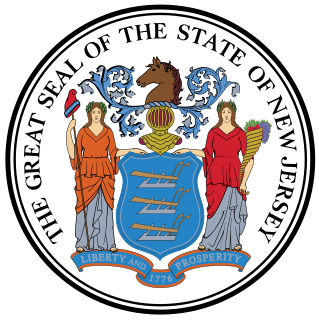 W
WThe 1981 New Jersey gubernatorial election was held on November 3, 1981. Republican Assembly Speaker Thomas Kean narrowly defeated Democratic U.S. Representative James Florio with 49.46% of the vote following a recount of the ballots. The difference between the two was less than 2,000 votes out of more than 2 million cast.
 W
WThe 2015 cash-for-votes scam was a political scandal, the second scandal of its kind since the 2008 cash-for-votes scandal. The 2015 political scandal started off when the Telugu Desam Party (TDP) leaders of Telangana state were caught in a video footage, aired in the media, offering bribes to a nominated MLA, Elvis Stephenson, for his vote in the 2015 elections of the Telangana Legislative Council. The TDP MLA Revanth Reddy was arrested by the Telangana Police when he was offering Rs. 50 lakhs to Stephenson. Reddy was then presented before the court and was sent to jail. Similarly, the phone conversation, which was quoted as the voice of N. Chandrababu Naidu, the then Andhra Pradesh Chief Minister, with Stephenson was aired in the news media.
 W
WThe 2016 Arizona Democratic presidential primary was held on March 22 in the U.S. state of Arizona as one of the Democratic Party's primaries ahead of the 2016 presidential election.
 W
WThe 2016 Arizona Republican presidential primary took place on March 22 in the U.S. state of Arizona as one of the Republican Party's primaries ahead of the 2016 presidential election. Despite a late challenge by Texas Senator Ted Cruz, Donald Trump won the primary and netted all 58 delegates in the winner-take-all contest. On the same day were held Democratic and Green primaries in Arizona, as well as Republican and Democratic caucuses in Utah and Idaho Democratic caucus, so the day was dubbed "Western Tuesday" by media.
 W
WA constitutional referendum was held in Thailand on 7 August 2016. The charter offered only semi-democracy and was seen to tighten military rule in Thailand. However, it was approved by 61% of voters with a 59% turnout. A second proposal for the next Prime Minister to be jointly elected by Senators and MPs was also approved. However, the opposition groups to the constitution were barred from formally campaigning against it by the military government, while the military government actively campaigned for its adoption.
 W
WThe Best Democracy Money Can Buy: An Investigative Reporter Exposes the Truth about Globalization, Corporate Cons, and High Finance Fraudsters is a 2002 book by investigative journalist Greg Palast. It is about corporate corruption, global capitalism, environmental destruction, third world exploitation, freedom of speech and political corruption, and the United States presidential election of 2000. Palast used the book as the basis for his 2004 documentary film Bush Family Fortunes.
 W
WThe history of black suffrage in the United States, or the right of African Americans to vote in elections, has had many advances and setbacks. Prior to the Civil War and the Reconstruction Amendments to the U.S. Constitution, some blacks in the United States had the right to vote, but this right was often abridged or taken away. After 1870, blacks were theoretically equal before the law, but in the period between the end of Reconstruction era and the passage of the Civil Rights Act of 1964 this was frequently infringed in practice.
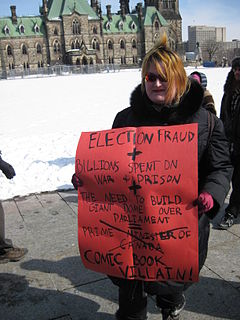 W
WThe 2011 Canadian federal election voter suppression scandal is a political scandal stemming from events during the 2011 Canadian federal election. It involved robocalls and real-person calls that were designed to result in voter suppression. Elections Canada and the Royal Canadian Mounted Police (RCMP) conducted investigations into the claims that calls were made to dissuade voters from casting ballots by falsely telling them that the location of their polling stations had changed. Further possible electoral law violations were alleged as the evidence unfolded. Under the Canada Elections Act, it is an offence to wilfully prevent or endeavour to prevent an elector from voting in an election.
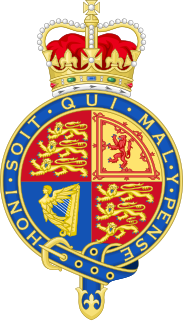 W
WCunningham v Homma, is a decision of the Judicial Committee of the Privy Council that upheld a British Columbia law that prohibited Japanese Canadians and Chinese Canadians from voting.
 W
WFlorida Senate Bill 90 is a law in the state of Florida which amends the state's election law.
 W
WThe For the People Act, introduced as H.R. 1, is a bill in the United States Congress to expand voting rights, change campaign finance laws to reduce the influence of money in politics, ban partisan gerrymandering, and create new ethics rules for federal officeholders.
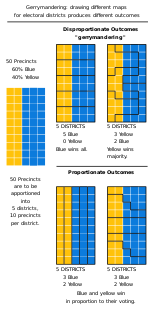 W
WGerrymandering is a practice intended to establish an arguably unfair political advantage for a particular party or group by manipulating the boundaries of electoral districts, which is most commonly used in first-past-the-post electoral systems.
 W
WInterstate Voter Registration Crosscheck was a database in the United States which aggregated voter registration records from multiple states to identify voters who may have registered or voted in two or more states. Crosscheck was developed in 2005 by Kansas Secretary of State Ron Thornburgh in conjunction with Iowa, Missouri, and Nebraska. In December 2019, the program was suspended indefinitely as part of a settlement of a lawsuit filed by the American Civil Liberties Union of Kansas challenging Kansas' management of the program. Prior to Crosscheck's legally mandated suspension, a dozen states had withdrawn from the program citing the inaccurate data and risk of violating voters' privacy rights. Crosscheck was also accused of facilitating unlawful purges of voters in a racially discriminatory manner.
 W
WThe 2002 New Hampshire Senate election phone jamming scandal involved the use of a telemarketing firm hired by that state's Republican Party (NHGOP) for election tampering. The tampering involved using a call center to jam the phone lines of a get out the vote (GOTV) operation. In the end, 900 calls were made for 45 minutes of disruption to the Democratic-leaning call centers.
 W
WGregory Allyn Palast is an author and a freelance journalist who often worked for the BBC and The Guardian. His work frequently focuses on corporate malfeasance but he has also worked with labour unions and consumer advocacy groups.
 W
WThe Presidential Advisory Commission on Election Integrity, also called the Voter Fraud Commission, was a Presidential Commission established by Donald Trump that ran from May 11, 2017 to January 3, 2018. The Trump administration said the commission would review claims of voter fraud, improper registration, and voter suppression. The establishment of the commission followed Trump's false claim that millions of illegal immigrants had voted in the 2016 presidential election, costing him the popular vote. Vice President Mike Pence was as chair of the commission and Kansas Secretary of State Kris Kobach was vice chair and day-to-day administrator.
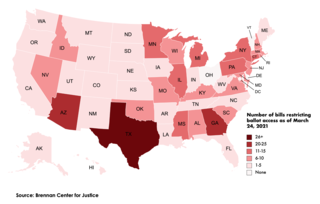 W
WFollowing the 2020 United States presidential election and attempts by Donald Trump and Republican officials to overturn it, Republican lawmakers initiated a sweeping effort to make voting laws more restrictive. According to the Brennan Center for Justice, as of March 24, 2021, more than 361 bills that would restrict voting access have been introduced in 47 states, with most aimed at limiting mail-in voting, strengthening voter ID laws, shortening early voting, eliminating automatic and same-day voter registration, curbing the use of ballot drop boxes, and allowing for increased purging of voter rolls.
 W
WGregory Allyn Palast is an author and a freelance journalist who often worked for the BBC and The Guardian. His work frequently focuses on corporate malfeasance but he has also worked with labour unions and consumer advocacy groups.